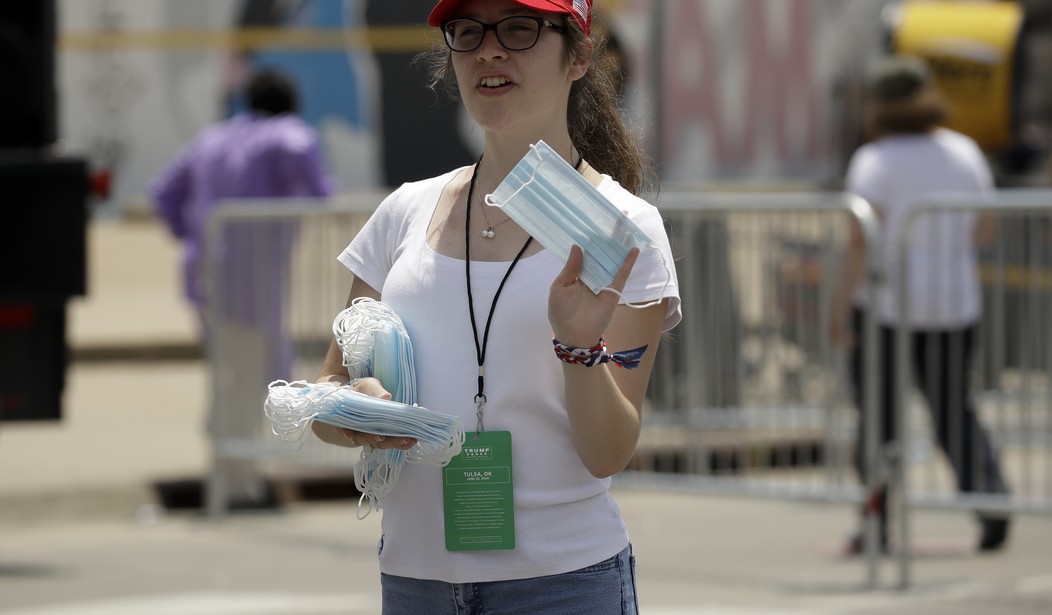Researchers from the University of Waterloo in Canada have determined that while N95 and KN95 masks do the best job at containing aerosol droplets from the wearer’s mouth, most cloth masks, such as the popular blue surgical masks, are only 10 percent effective since it doesn’t properly cover the wearer’s mouth.
“There is no question it is beneficial to wear any face covering, both for protection in close proximity and at a distance in a room,” Serhiy Yarusevych, a professor of mechanical and mechatronics engineering who led the study, said in a statement. “However, there is a very serious difference in the effectiveness of different masks when it comes to controlling aerosols.”
According to the study, “the most common masks, primarily due to problems with fit, filter about 10 percent of exhaled aerosol droplets. The remaining aerosols are redirected, mostly out the top of the mask where it fits over the nose, and escape into the ambient air unfiltered.”
Even N95 and KN95 masks aren’t perfect but filter over 50 percent of exhaled aerosols. These masks are more expensive and may not be readily available or practical for some people.
The study also found that proper ventilation systems can be just as effective as the best masks. “Even modest ventilation rates were found to be as effective as the best masks in reducing the risk of transmission.”
Other studies have shown that masks aren’t necessarily effective at protecting wearers from spreading or catching COVID, particularly with children who are already at extremely low risk.
Dr. Anthony Fauci also acknowledged the ineffectiveness of masks. “Masks are really for infected people to protect them from spreading infection to people who are not infected rather than protecting uninfected people from acquiring infection,” Fauci wrote on February 5, 2020. “The typical mask you buy in the drug store is not really effective in keeping out virus, which is small enough to pass through the material.”
Despite his private acknowledgment of the ineffectiveness of masks, Fauci would go on to publicly recommend mask-wearing, goggles, and even double masking. Senator Rand Paul (R-Ky.) has repeatedly criticized mask mandates and challenged Fauci’s public recommendations and behavior.
“You’ve been vaccinated,” Paul pointed out to Fauci back in March of this year. “And you parade around in two masks for show.”
In April, Paul noted that a National Institutes of Health (NIH) study had determined that anyone who has recovered from COVID-19 or has been vaccinated has immunity from all variants of the disease.
“Dr. Fauci, great news! T cell immunity after natural infection is shown to include variants. Do we still need to wear multiple masks after we’ve recovered or been vaccinated?” Paul tweeted.
According to that study, “virtually all anti-SARS-CoV-2 CD8+ T-cell responses should recognize these newly described variants.” This remains true. According to a CDC document obtained by ABC News last month, despite fearmongering headlines, COVID-19 infections in previously recovered or vaccinated individuals are extremely rare—about 0.098 percent.
“The risk to fully vaccinated people is dramatically less than that to unvaccinated individuals. The occurrence of breakthrough cases is expected and, at this point, is not at a level that should raise any concerns about the performance of the currently available vaccines,” said Matthew Ferrari, director of the Center for Infectious Disease Dynamics at Pennsylvania State University.










